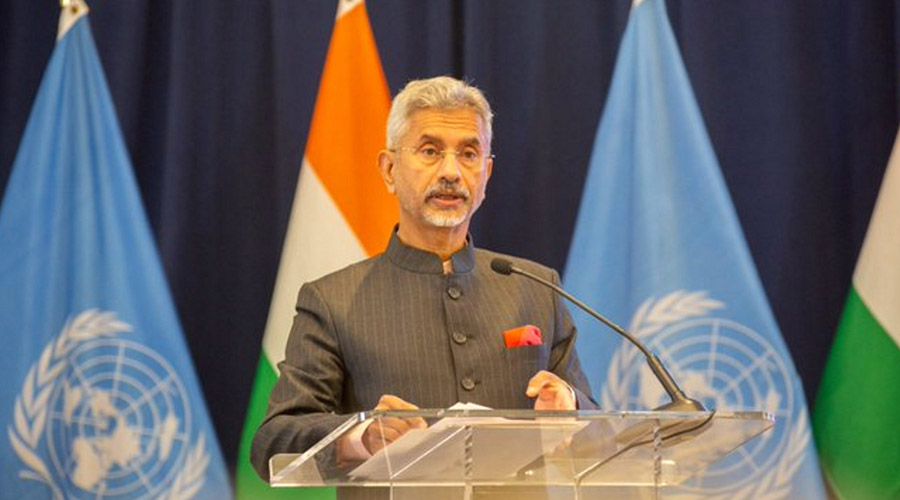External affairs minister S. Jaishankar said on Tuesday that a working relationship between India and China is not easy after 2020.
“Establishing a modus vivendi between India and China after 2020 is not easy. Yet, it is a task that cannot be set aside. And this can only become sustainable on the basis of three mutuals: mutual respect, mutual sensitivity and mutual interest,” he said.
In June 2020, Chinese troops had killed 20 Indian soldiers at Galwan in eastern Ladakh.
Chinese ambassador Sun Weidong said last month that the phase of emergency response to the Galwan clash is over.
Jaishankar on Tuesday delivered the keynote address at a conference of the Centre for Contemporary China Studies on “China’s Foreign Policy and International Relations in the New Era”.
Maintaining that peace and tranquillity in border areas remains the basis for normal relations between the two countries, he said “from time to time, this has been mischievously conflated with the sorting out of the boundary question”. This appeared to be a reference to Sun’s remarks on September 27.
Sun had said: “The phase of emergency response since the Galwan Valley incident has basically come to an end, and the border situation is now switching to normalized management and control.’’
India and China have the world’s longest disputed border: while India claims it is 3,488km long, China insists it is only around 2,000km. Successive governments had seen merit in not allowing the boundary dispute to eclipse the bilateral engagement, but the clashes in Galwan in the summer of 2020 after the Chinese amassed troops along the Line of Actual Control in Ladakh put a spanner in the works.
India has since maintained that the bilateral relationship cannot return to its pre-2020 status without peace and tranquillity in the border areas while China has been advocating that this can be kept in a silo while carrying on with the bilateral engagement.
Jaishankar said: “The last few years have been a period of serious challenge, both for the relationship and for the prospects of the continent. The continuation of the current impasse will not benefit either India or China. New normals of posture will inevitably lead to new normals of responses. It is the willingness to take a long-term view of their ties that the two countries must display today.’’










